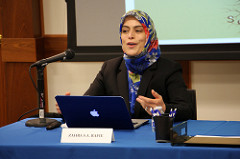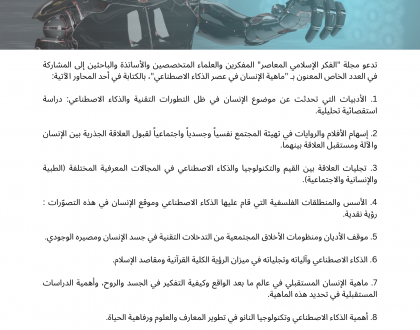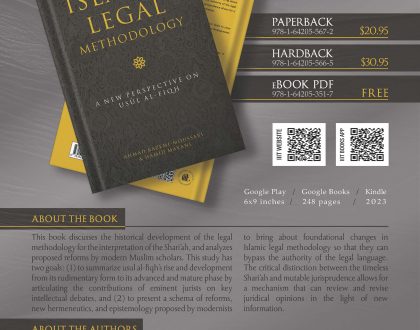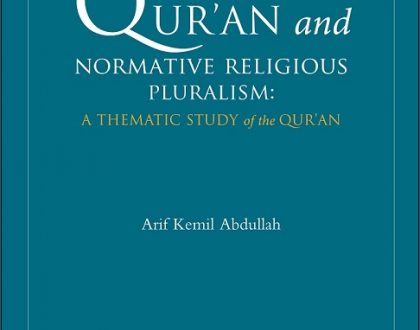Zahra Rafie and Youth Empowerment

The International Institute of Islamic Thought (IIIT) invited Dr. Zahra Rafie to present her research titled, “Youth Empowerment, Ethics, and Islamic Curriculum for Ages 11+,” on Wednesday, May 24, 2017. Dr. Rafie’s research was supported by a IIIT grant.
The International Institute of Islamic Thought (IIIT) invited Dr. Zahra Rafie to present her research titled, “Youth Empowerment, Ethics, and Islamic Curriculum for Ages 11+,” on Wednesday, May 24, 2017. Dr. Rafie’s research was supported by a IIIT grant.
She recently began exploring ways to improve the Islamic Studies curriculum as taught in weekend Islamic schools as well as full-time faith-based schools. According to her, although our children are growing up in a very different environment here in the States, we continue to teach Islamic Studies to them the same way we learned it back in our home countries. “The purpose of the curriculum is to create a space where Muslim youth are given tools to explore their identities as Muslims and the relationship between religion, ethics, and community,” she explained. She believes that in an increasingly Islamophobic environment, such an Islamic Studies curriculum will help “produce critically thinking young adults who are prepared to face the moral and ethical struggles and articulate thoughtful, god-conscious responses to these struggles.”
During her six-month research, Dr. Rafie examined 37 Islamic Studies curricula from the Washington metropolitan area and London, England. Of these, she critically reviewed 14 belonging to full-time Islamic schools, weekend Islamic schools, and homeschooling organizations. She interviewed 100 students along with various teachers, imams, and scholars. Her findings indicated that students identify themselves foremost as Muslims even though Islamic Studies classrooms are often segregated along sects and ethnicities. Furthermore, the unilateral feeding of knowledge without interactive discussions result in disengaged students who largely find these classes to be “boring,” she said. In addition, she remarked that the “uncritical employment of history to prove a certain narrative shortchanges students’ critical thinking abilities” which they must develop in order to form a confident Muslim identity in these troubled times.
Based on her research outcomes, Dr. Rafie recommends that a social justice approach is adopted in the teaching of Islamic Studies which is free of any sectarian slant. “It should be an independent, research-based, empowerment curriculum for Muslim youth,” she advised. She envisions a curriculum which robustly explores the relationship between Islam, current events, and ethics. In doing so, Muslim youth will be able to understand that their religion provides solutions to all sorts of problems rather than view it as a burden, she explained. “Religions have a powerful role in shaping ideas of social justice and legitimacy,” Dr. Rafie stated. “Through emphasis on Islamic teachings about the inherent dignity of human beings (karamah), and the requirement to treat all with value and respect, the students can develop a sense of self-esteem, confidence, conscience, and solidarity that will enable them to contribute to a culture of peace.”
Dr. Rafie emphasized the importance of identity, security, and belonging in the cultivation of healthy as well as socially and morally responsible youth. Part of the effort, she commented, was in “educating the educators” so that the classroom is an embodiment of a socially just environment where, among other things, disagreement is celebrated. However, she cautioned that an Advisory Board is necessary to ensure that the revised curriculum is grounded in authentic sources and this is the framework the teachers utilize in developing and executing learning material. Eventually, the educational material should be paired with community service so that it takes on an action-oriented stance.
She hopes that her research is “followed up by putting together a council of representative experts consisting of scholars, educators and activists to critically engage in discussion and dialogue and to help develop a curriculum that is engaging, empowering and true to each tradition.”
The lecture was followed by a Question and Answer session during which participants had the opportunity to engage with Dr. Rafie.
Recommended Posts

استكتاب عدد خاص من مجلة
“الفكر الإسلامي المعاصر”بعنوان
“ماهية الإنسان في عصر الذكاء الاصطناعي”
June 12, 2024

ISLAMIC LEGAL METHODOLOGY: A NEW PERSPECTIVE ON UŞŬL AL-FIQH
March 14, 2024

